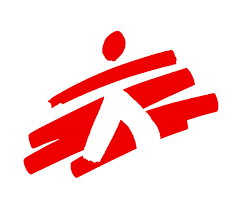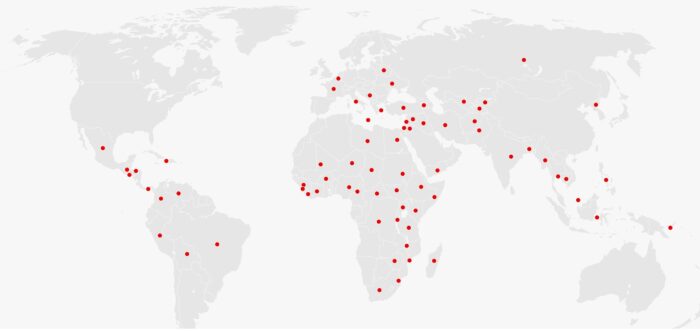Doctors Without Borders (MSF) is an international medical humanitarian organization that provides emergency medical care and assistance to people affected by conflict, epidemics, natural disasters, and exclusion from healthcare. MSF has been working in Africa for over 30 years, responding to medical emergencies, providing medical care to those in need, and advocating for access to quality healthcare for all.

In Africa, MSF has been providing medical care and humanitarian aid for over 40 years. The organization operates in conflict zones, areas affected by epidemics, and regions where healthcare services are limited or nonexistent. In addition to responding to emergencies, MSF also engages in longer-term projects to address structural issues and strengthen healthcare systems. For example, in the Democratic Republic of Congo, MSF has been working to combat the Ebola outbreak, providing medical care to those affected by the disease and conducting community outreach activities to prevent its spread. In Mozambique, MSF has been providing emergency medical care and mental health support to people affected by conflict. MSF also provides care for refugees and internally displaced persons in countries such as Kenya, Cameroon, and Chad. In all of its activities, MSF places a strong emphasis on respecting the dignity of patients and providing care that is free from discrimination. Overall, MSF’s work in Africa is an essential component of the organization’s global mission to provide medical care to those in need, regardless of their background or circumstances.
In order to carry out its work in Africa, MSF relies on the dedication of its staff and volunteers from around the world. These individuals work in challenging and often dangerous conditions, putting their own safety at risk in order to provide care to others. Many MSF staff members have themselves been affected by conflicts or epidemics, and their personal experiences inform their work and commitment to helping others. MSF also works closely with local communities and healthcare providers, building relationships and collaborating to provide the best possible care. By partnering with local organizations and individuals, MSF is able to leverage local knowledge and expertise to better serve patients and communities.
In 2022, MSF continued to provide vital medical assistance in several African countries. The following table highlights some of the missions that MSF conducted in Africa last year:
Table: Doctors Without Borders (MSF) Missions in Africa, 2022
| Country | Mission Name | Duration | Type of Intervention |
|---|---|---|---|
| Nigeria | Maiduguri Emergency Response | Jan-Dec 2022 | Emergency Medical Care |
| South Sudan | Aweil Hospital Support | Jan-Dec 2022 | Hospital Support and Capacity Building |
| Ethiopia | Tigray Emergency Response | Jan-Dec 2022 | Emergency Medical Care and Nutrition Support |
| Chad | Bokoro Emergency Response | Jan-Dec 2022 | Emergency Medical Care |
| Burkina Faso | Dori Emergency Response | Jan-Dec 2022 | Emergency Medical Care |
| Central African Republic | Bangui Hospital Support | Jan-Dec 2022 | Hospital Support and Capacity Building |
| Mozambique | Pemba Emergency Response | Jan-Dec 2022 | Emergency Medical Care and Mental Health |
| Cameroon | Maroua Emergency Response | Jan-Dec 2022 | Emergency Medical Care |
| Guinea | Conakry Ebola Response | Jan-Dec 2022 | Ebola Response and Prevention |
| South Africa | Johannesburg Covid-19 Response | Jan-Dec 2022 | Covid-19 Response and Prevention |
| Kenya | Dadaab Refugee Camp Health Services | Jan-Dec 2022 | Refugee Health Services |
| Democratic Republic of Congo | Lubumbashi Hepatitis C Program | Jan-Dec 2022 | Hepatitis C Treatment and Prevention |
| Sudan | Kassala Health Services | Jan-Dec 2022 | Health Services and Capacity Building |
| Eswatini | Mbabane Sexual and Reproductive Health | Jan-Dec 2022 | Sexual and Reproductive Health Services |
| Zimbabwe | Harare Mental Health Support | Jan-Dec 2022 | Mental Health Support and Capacity Building |
MSF’s work in Africa is essential not only for the individuals and communities it serves, but also for the broader global health community. The challenges faced by MSF in its work on the ground help to inform and shape discussions and policies around healthcare and humanitarian aid. Through its advocacy efforts, MSF seeks to raise awareness about the needs of vulnerable populations and to push for greater investment in healthcare and humanitarian aid. Ultimately, MSF’s work in Africa is a testament to the resilience of individuals and communities, and to the power of medical care and humanitarian aid to make a positive difference in the lives of those who need it most.

MSF not only provides medical care to communities in need but also creates job opportunities in the areas where it operates. By hiring local staff and working with local suppliers, MSF contributes to the economic development of communities and helps to build local capacity. In addition to creating jobs directly, MSF’s presence in a region can have a ripple effect on the local economy, as businesses and services may emerge to support the needs of MSF staff and operations.
MSF also invests in training and education programs for local healthcare workers, helping to build a skilled and sustainable workforce that can continue to provide care even after MSF has left the region. These programs include training in emergency response, epidemic control, and other critical skills, as well as support for continuing education and professional development.
Furthermore, MSF’s work often involves engaging with local communities and building trust and relationships. By working closely with community leaders, MSF is able to better understand the needs and concerns of the community and tailor its interventions accordingly. This community engagement can also help to create a sense of ownership and investment in the healthcare services being provided, which can have long-term benefits for the sustainability of healthcare in the region.
Overall, MSF’s work in Africa goes beyond providing medical care in emergencies and has important economic and social impacts on the communities it serves. By creating jobs, investing in education and training, and engaging with local communities, MSF helps to build sustainable healthcare systems and contribute to the development of communities.
MSF Donation here